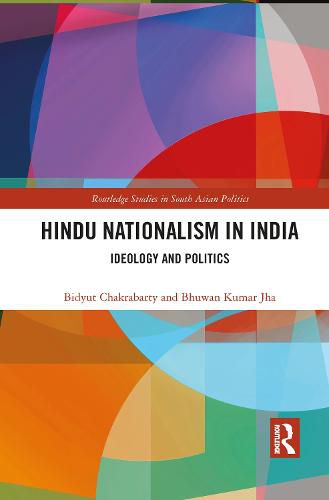Readings Newsletter
Become a Readings Member to make your shopping experience even easier.
Sign in or sign up for free!
You’re not far away from qualifying for FREE standard shipping within Australia
You’ve qualified for FREE standard shipping within Australia
The cart is loading…






This book offers an in-depth study of right-wing politics in India by analysing the shifting ideologies of Hindu nationalism and its evolution in the late nineteenth century through to twenty-first century.
The authors provide a thorough overview of the chronological evolution of Hindu nationalist organizational outfits to reveal how Hindu nationalist ideology has adapted in ways that have not always corresponded with the orthodox Hindu nationalist position. An examination of the overriding preference for Hindu nationalism demonstrates how it has flourished and continues to remain relevant in contemporary India despite being marginalized at the dawn of India’s independence. The book demonstrates that Hindu nationalism is a context-driven ideological device which is sensitive to the ideas and priorities that gradually gain salience. It also explores Hindu nationalism as a vote-catching device, especially from the late twentieth century onwards.
Providing a nuanced analysis of Hindu nationalism in India as a constantly evolving phenomenon, this book will be of interest to researchers on Asian political theory, nationalism, religious politics and South Asian and Indian politics.
$9.00 standard shipping within Australia
FREE standard shipping within Australia for orders over $100.00
Express & International shipping calculated at checkout
This book offers an in-depth study of right-wing politics in India by analysing the shifting ideologies of Hindu nationalism and its evolution in the late nineteenth century through to twenty-first century.
The authors provide a thorough overview of the chronological evolution of Hindu nationalist organizational outfits to reveal how Hindu nationalist ideology has adapted in ways that have not always corresponded with the orthodox Hindu nationalist position. An examination of the overriding preference for Hindu nationalism demonstrates how it has flourished and continues to remain relevant in contemporary India despite being marginalized at the dawn of India’s independence. The book demonstrates that Hindu nationalism is a context-driven ideological device which is sensitive to the ideas and priorities that gradually gain salience. It also explores Hindu nationalism as a vote-catching device, especially from the late twentieth century onwards.
Providing a nuanced analysis of Hindu nationalism in India as a constantly evolving phenomenon, this book will be of interest to researchers on Asian political theory, nationalism, religious politics and South Asian and Indian politics.